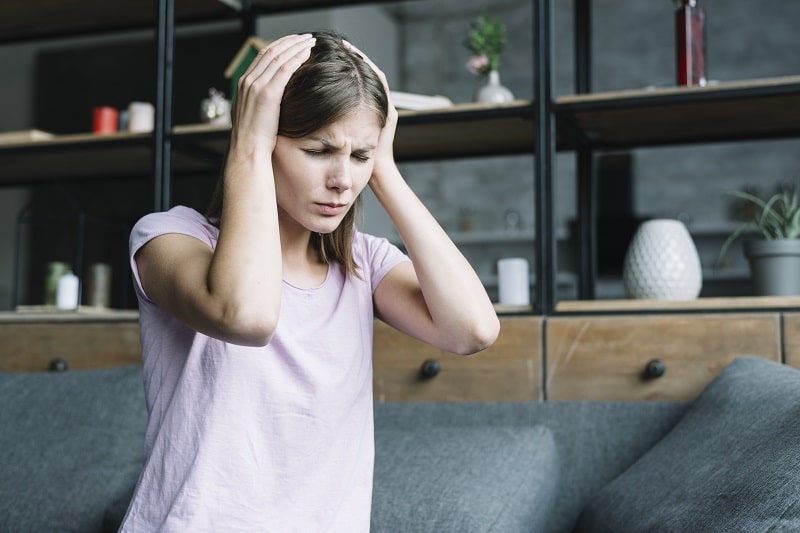Impulse Control Disorder Treatment
Impulse Control Disorder (ICD) affects a person’s ability to control their behaviors and impulses. It’s more than a lack of self-control—it’s a mental health condition that affects your life, your relationships, and your health every day. We know how tough it is to live with an ICD, but at Orlando Treatment Solutions our compassion and evidence-based treatment programs will provide you the tools to put your ICD behind you and live a healthier, more balanced life.
Understanding Impulse Control Disorder
Impulse Control Disorder (ICD) is a group of psychiatric conditions in which one is unable to resist behaving in a way that is damaging to oneself or others. The extent of these actions can be from minor — like going overboard on shopping or playing too many games of craps — to more serious actions like throwing fits or stealing.
Some of the most common types of Impulse Control Disorders include:
- Kleptomania: The impulse to steal things, most of the time, things that don’t need to be stolen.
- Intermittent Explosive Disorder: Acute episodes of intense anger or violent behavior, far out of proportion to what seems to excite them.
- Pyromania: A compulsion to set fires.
- Compulsive Gambling: The overwhelming urge to gamble can lead to social, emotional, and financial problems.
- Trichotillomania: Causes an individual to compulsively pull their hair leading to visible hair loss and distress.
But people with ICD often feel intense tension or arousal before they do these things, then feel relief or satisfaction. But that is usually followed by guilt, shame, and remorse that perpetuates a negative cycle. At Orlando Treatment Solutions, we break this cycle and help people regain the ability to control their behavior.
Signs and Symptoms
The first step to treatment is to recognize the symptoms of Impulse Control Disorder. Common signs and symptoms include:

- Repeatedly acting impulsively, which causes negative consequences
- Lack of ability to resist bad or harmful urges.
- Excitement or tension before doing the impulsive act.
- Guilt or remorse afterward
- Impulsive behaviors disrupting personal, professional, or social life
- Trouble maintaining healthy relationships.
Because ICD individuals may also have a co-occurring mental health problem, such as anxiety, depression, or drinking problems, that complicates treatment. Orlando Treatment Solutions treats both underlying ICD as well as any other concerns for complete recovery in the long run.
Causes and Risk Factors
Impulse Control Disorder has genetic, environmental, and psychological factors. Some common contributors include:
- Genetic predisposition: There is an increased likelihood of ICD when you have a family history of mental health conditions.
- Environmental factors: Impulsive behavior can be triggered by traumatic or stressful situations, but particularly exposure to them early in life.
- Brain chemistry: The imbalance of neurotransmitters like dopamine and serotonin has been associated with impulsive behaviors.
- Co-occurring disorders: ICD is frequently linked to other mental disorders, such as anxiety, depression, or a substance abuse disorder.
Underlying causes and risk factors are important in planning effective treatment. We look at each individual’s specific situation and develop a tailored treatment solution.
Lorem ipsum dolor sit amet, consectetur adipiscing elit. Ut elit tellus, luctus nec ullamcorper mattis, pulvinar dapibus leo.
Treatment Options
Orlando Treatment Solutions provides a wide variety of therapies for Individuals with Impulse Control Disorder, including educating the patient on their behavior, teaching the patient ways to cope with that behavior, and ultimately helping the patient regain control of their life. Our comprehensive treatment options include:
Cognitive Behavioral Therapy (CBT)
One treatment for ICD that has proven the most effective is CBT. This type of therapy tries to identify and then challenge these negative thought patterns that cause impulsive dysfunction. By pointing individuals to triggers and helping them build up healthier coping mechanisms, CBT gives people power over their actions, allowing them to both see and act on choices, rather than just the opposite.
Dialectical Behavioral Therapy (DBT)
The treatment or therapy known as DBT is built on CBT, but with an emphasis on emotional regulation, and distress tolerance. This therapy is noteworthy for those with ICD whose emotional triggers that lead to impulsive behavior are intense. They teach patients skills for managing their emotions, staying in the present moment, as well as the impulsive urge to act without.
Group Therapy
Group therapy also offers a safe place for individuals with ICD to talk about what they and others living with the condition are going through, and how they are coping with it. Group therapy sessions provide connection, help reduce the feeling of isolation, as well as offer guidance on how to manage urges.
Mindfulness and Relaxation Techniques
Mindfulness practices, such as meditation and breathing exercises, do not run your thoughts and emotional responses which influence the way you think or act. Practicing mindfulness for patients allows them to become better aware of both themselves and the emotions they experience, learn to accept uncomfortable emotions and lower susceptibility to engaging in harmful behavior.
Family Therapy
Impulse Control Disorder does not only affect the person, families can be affected too. Family therapy fosters healthy communication as well as helps families understand it. This therapy gives family members the means of helping them work for a healthier future for their loved ones as well as helping them recover.
CALL US NOW
Orlando Treatment Solutions will iron out the details for you in a manner that will make you confident in your path to sobriety. That first simple call is your ticket to making Orlando Treatment Solutions your solution for addiction. Get the freedom from addiction that you deserve today.
Why Choose Orlando Treatment Solutions?
Our goal is to not only treat people with Impulse Control Disorder but to do so in a compassionate, evidence-based manner, using our Orlando Treatment Solutions. The root causes of your condition are addressed by our multidisciplinary team working closely with each patient to provide the support that will enable lasting recovery. No matter whether you want to help yourself or someone in your life, our team is here to help you every step of the way.

Take the First Step Toward Healing
If you or someone you care about is dealing with an Impulse Control Disorder, don’t hesitate to seek help. Contact Orlando Treatment Solutions today. We want to help you reassert control and start building your way to a brighter future.












